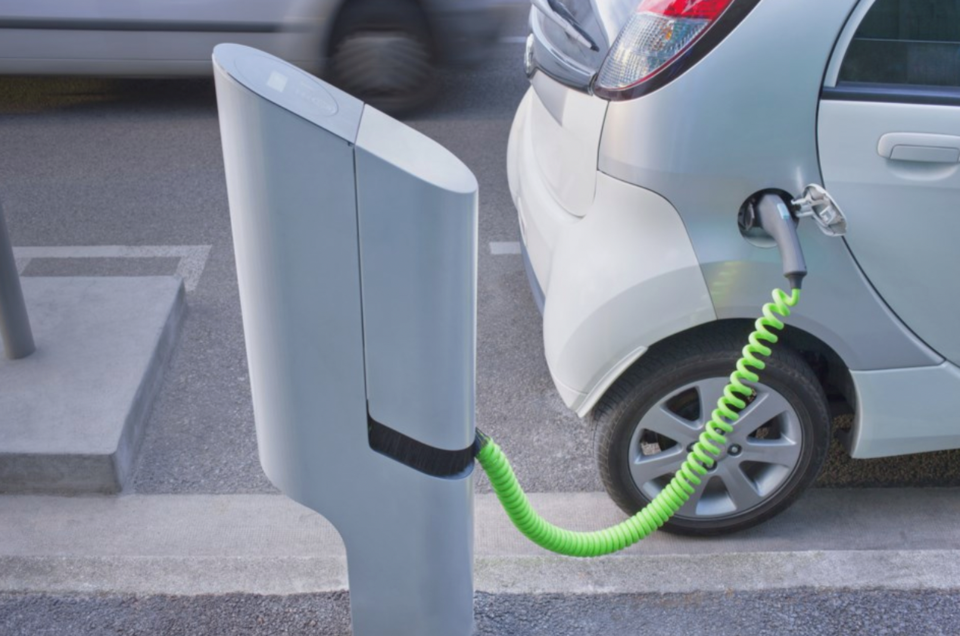Cambridge councillors voted Tuesday to support a motion tabled by Coun. Scott Hamilton that directs city staff to examine the possibility of mandating that all new developments, retail locations, and city parking lots, possess a certain number or percentage of parking spots for electric vehicle (EV) charging stations including spots designated as accessible.
The motion poses that since a significant percentage of greenhouse gases (GHGs) cause climate change, the city needs to do its part to help reduce our reliance on internal combustion engines and support shifting consumer interest in EVs.
"The change is coming," Hamilton said, in outlining the consumer movement toward EVs. "This issue, and it's come to council a few times and I'm not calling out any developer specifically, but there can be hundreds and hundreds of proposed parking spots and the question is how many of these have electric charging stations and the answer typically is 'none.'"
"It makes sense for us, both environmentally, and in terms of cost savings to the taxpayers to take this on today," he added.
The federal government has a mandate in place that will require 20 per cent of vehicles sold by 2026 to be electric, with further regulations in the works that will require that 100 per cent of all new passenger vehicles and light trucks sold in Canada after 2035 be electric zero-emission.
Hamilton said the global movement in the automobile sector is occurring with efforts to design, build, and sell zero- emission electric vehicles (ZEVs), electric vehicles, (EVs), plug-in hybrid electric vehicles (PHEVs) and hybrid vehicles, that produce far less GHG emissions than internal combustion engines.
Last year, 7.8 million EV units sold globally, up 68 percent from 2021.
"We know we are in the midst of a climate emergency, we know the climate is warming and we know change is coming at an environmental level, at a governmental level, industry demand is changing and, of course, market demand is changing as consumers recognize this," Hamilton said.
Hamilton's motion also calls for requirements around the installation of electrical conduits in existing parking lots to allow for the installation of charging stations.
As well, with a projected growth of 70,000 residents over the next 30 years, the motion asks that the percentage of EV spots and charging stations rise in accordance with federally mandated numbers of electric vehicle ownership rates.
This, it says, will "ensure the city can provide future-proofing for green infrastructure that is able to meet consumer demand for electric charging stations while helping to fight climate change by encouraging the removal of internal combustion engines from our roadways and parking lots."
In offering her support of the motion, which earned the unanimous support of council, Coun. Sherri Roberts said her experience with doing "something right the first time" is it's far easier and cheaper.
"The bottom line is this is happening. We are moving towards electric vehicles, there's going to be more of them and I can see mandates coming down the road where this has to happen," she said. By having EV-ready lots in as many places as possible makes sense and in the long run will save taxpayer dollars.
Coun. Adam Cooper asked that staff look at how other municipalities might be handling this issue and ensuring the "burden of this gets put where it should be."
Unlike gas stations, which are privately owned and crop up based on market demand, EV stations under this framework would place the burden on retail property owners and developers.
"I'm just concerned we don't put this on people that shouldn't necessarily shoulder that burden. That's all."
Mayor Jan Liggett said her priority is to ensure any mandate from the city doesn't somehow reduce the number of visitor parking or handicap spots to accommodate EV vehicle charging. "I don't want somebody penalized because they couldn't find a spot so they parked in an EV spot because that was the only one available," she said.

